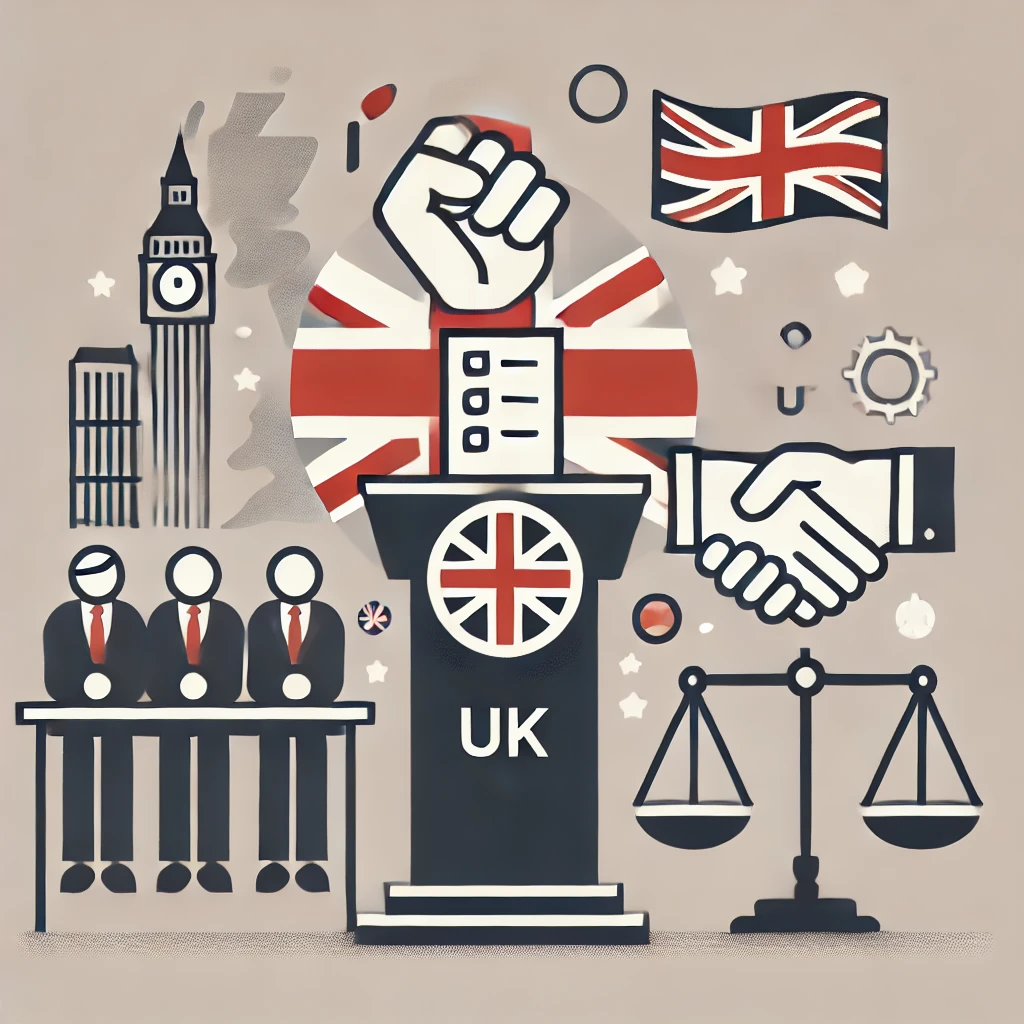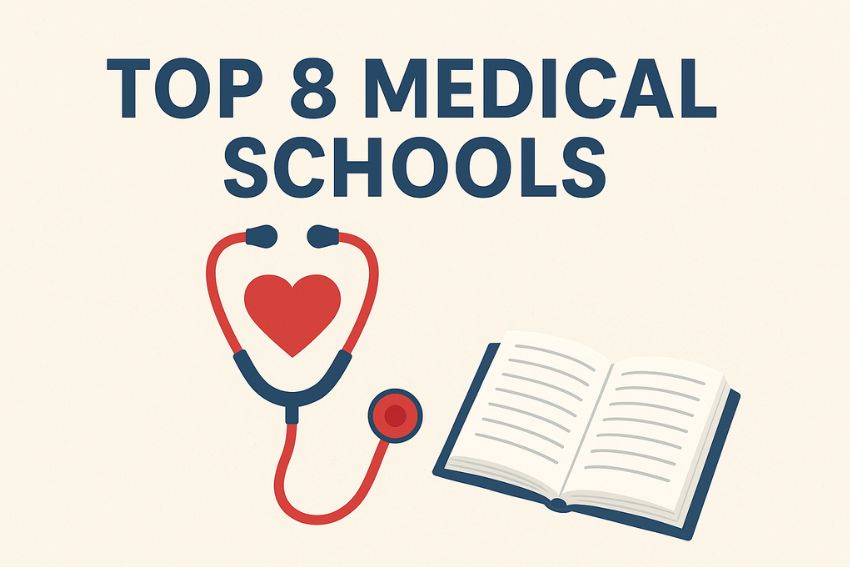Right-Wing vs Left-Wing – Understanding the UK Political Spectrum A-level Politics
Understanding the UK political spectrum is essential for A-Level politics students. The political spectrum is a system used to classify and compare different political ideologies, ranging from left-wing to right-wing. In the context of UK politics, understanding this spectrum is crucial for making sense of party positions, policies, and public debates. While left-wing ideologies typically support social equality, government intervention, and welfare systems, right-wing views often favour economic freedom, limited government, and traditional values. Recognising where parties like the Conservatives and Labour stand on this spectrum helps contextualise their approach to national and international issues.
Right-Wing vs Left-Wing: Core Differences and Debates

The divide between right-wing and left-wing politics is at the heart of many political debates in the UK. Left-wing politics, represented by parties like Labour, promote social equality, wealth redistribution, and a larger government role in public services. They focus on welfare, environmental sustainability, and workers’ rights to reduce inequalities.
In contrast, right-wing politics, led by the Conservatives, value economic freedom, lower taxes, and minimal state intervention. Right-wing ideologies emphasise traditional social values, individual responsibility, and a free-market economy. These contrasting beliefs shape policy decisions on issues like taxation, welfare, and healthcare, making this ideological divide crucial for understanding the political landscape and party dynamics.
- Economic Policy:
- Left-Wing: Advocates for a more significant role of government in regulating the economy, higher taxes on the wealthy, and increased public spending to reduce social inequality.
- Right-Wing: Supports free-market economics, lower taxes, and privatisation, believing that individuals should have the freedom to manage their wealth and make economic choices.
- Role of Government:
- Left-Wing: Favours a larger government role in public services, business regulations, and social welfare.
- Right-Wing: Prefers a smaller government that intervenes less in people’s lives, promoting personal responsibility and entrepreneurship.
- Social Policy:
- Left-Wing: Pushes for progressive social reforms, equal rights, and support for disadvantaged communities.
- Right-Wing: Upholds traditional values, with a stronger focus on national identity, law and order, and cautious social change.
- Healthcare and Welfare:
- Left-Wing: Prioritises universal access to healthcare and a robust welfare state.
- Right-Wing: Encourages a more privatised healthcare system and welfare policies that promote self-sufficiency.
Understanding the ideological divide between right-wing and left-wing politics is essential for comprehending the UK’s political landscape. Left-wing parties, like Labour, focus on promoting social equality through wealth redistribution and government intervention, while right-wing parties, such as the Conservatives, prioritise economic freedom, lower taxes, and minimal state involvement.
These core differences shape debates on taxation, welfare, healthcare, and social policies, influencing voter behaviour and party dynamics. For A-Level politics students, grasping these distinctions is key to analysing party positions and policy decisions effectively.
Is Conservative Left or Right in the UK?
The Conservative Party is positioned on the centre-right of the UK political spectrum. Their policies reflect a blend of economic liberalism and social conservatism. Economically, they advocate for free-market principles, supporting privatisation and reduced government intervention. This approach aligns with their belief that economic growth is best achieved through minimal regulation and competition.
Socially, the Conservatives tend to uphold traditional values, promoting national identity and a strong stance on law and order. Their focus on smaller government, lower taxes, and personal responsibility differentiates them from left-wing parties like Labour, which emphasise welfare support and social equality. This centre-right position means that while the party adopts some progressive reforms, it generally favours gradual change over radical shifts in society.
What is Left-Wing Politics in the UK?
Left-wing politics in the UK is primarily represented by the Labour Party. The Labour Party is positioned on the centre-left and advocates for greater government involvement in the economy to ensure social welfare and reduce inequality. Their core beliefs include wealth redistribution, higher taxes on the wealthy, and increased spending on public services such as healthcare and education.
Left-wing policies aim to provide equal opportunities for all, regardless of social background. The Labour Party champions universal healthcare through the NHS, free education, and strong labour rights. These ideologies contrast sharply with right-wing policies that prioritise economic freedom and individual responsibility. In the UK, left-wing politics also extends to progressive social changes, supporting diversity, inclusion, and environmental sustainability.
What is Right-Wing Politics in the UK?
Right-wing politics in the UK is defined by its emphasis on economic freedom, reduced government intervention, and a focus on traditional values. The Conservative Party, the main right-wing party, supports privatisation and free-market policies, advocating for minimal regulation and lower taxes to stimulate economic growth.
Socially, right-wing politics tends to favour national security, a strong stance on law and order, and policies that reflect traditional values. This contrasts with left-wing ideologies that prioritise social welfare and progressive change. Right-wing views are not homogeneous across the globe; in some countries, right-wing parties may be more radical or nationalistic, but in the UK, right-wing politics is generally associated with a balance of economic liberalism and social conservatism. Right-wing politics in the UK balance economic liberalism with social conservatism, differing from more extreme right-wing parties globally.
Right-Wing Meaning: A Global Perspective
Globally, right-wing ideologies encompass a wide range of beliefs, but they generally share a common emphasis on maintaining social order, national identity, and economic freedom. In the US, for instance, right-wing politics is represented by the Republican Party, which promotes free-market principles, a limited welfare state, and strong national defence.
In Europe, right-wing parties like Germany’s Alternative für Deutschland (AfD) and France’s National Rally place more emphasis on nationalism and stricter immigration policies. While these parties share core right-wing values with the UK’s Conservatives, they may differ significantly in their approach to social issues and government intervention.
For A-Level politics students, understanding these global variations is key to grasping how right-wing politics influences both domestic and international policies.
What is the political hierarchy of the UK?
Grasping left-wing vs right-wing ideologies is essential. The United Kingdom has a complex political hierarchy structured around a constitutional monarchy and a parliamentary system. Here’s a breakdown of the main components:
- The Monarch: Currently Queen Elizabeth II, the monarch is the ceremonial head of state and has limited powers, mostly ceremonial and symbolic. The monarch’s role includes the formal opening of Parliament, the granting of royal assent to laws passed by Parliament, and representing the UK internationally.
- The Parliament: The UK Parliament is bicameral, consisting of two houses:
- The House of Commons: Composed of Members of Parliament (MPs) who are elected by the public in general elections or by-elections. The House of Commons is the primary legislative body, and its majority party forms the government.
- The House of Lords: Made up of life peers, bishops, and hereditary peers. It acts as a revising chamber for legislation and holds the government to account through questions and debates.
- The Prime Minister: The leader of the majority party in the House of Commons is appointed as the Prime Minister by the monarch. The Prime Minister heads the executive branch, oversees the operation of the Civil Service and government agencies, appoints members of the government, and is the principal government figure in policy making and decision-making.
- The Cabinet: Comprising senior members of the government, typically heading ministries or departments, chosen by the Prime Minister. The Cabinet is responsible for major government policies and decisions.
- Devolved Governments: Scotland, Wales, and Northern Ireland have their own devolved parliaments or assemblies with varying degrees of legislative power in certain areas like education, health, and transportation:
- Scottish Parliament
- Welsh Parliament (Senedd Cymru)
- Northern Ireland Assembly
- Local Government: The UK is divided into areas with local councils that handle regional issues such as housing, local transport, planning applications, and waste management. These councils can vary in structure and powers, with different arrangements in place for England, Scotland, Wales, and Northern Ireland.
This hierarchy supports the administration and governance of the UK, allowing for both central and local decision-making.
Conclusion: Why Understanding These Distinctions Matters for A-Level Students
For A-Level politics students, distinguishing between left-wing and right-wing ideologies is crucial for analysing political parties, voter behaviour, and policy decisions. This knowledge forms the basis for understanding how political debates unfold, why parties take particular stances, and how these ideologies shape national discourse.
Mastering these concepts will not only help students excel in their exams but also develop a deeper appreciation of the political forces that shape the UK and global politics. For personalised guidance and in-depth support, consider working with an experienced A-Level Politics tutor who can help refine your analytical skills and deepen your understanding of these complex ideologies.
FAQ’s
What political party is right-wing?
In the UK, the Conservative Party is generally considered the main right-wing political party. They often advocate for free market policies, a smaller government in terms of regulation, and traditional social values. Other right-wing parties include the UK Independence Party (UKIP) and the Brexit Party, which focus heavily on issues like national sovereignty and immigration.
Is conservative right or left wing in the UK?
In the UK, the Conservative Party is considered a right-wing political party. They typically advocate for free-market policies, a smaller government in terms of economic intervention, and conservative social values.
What are the political sides in the UK?
In the UK, the political landscape is primarily divided into three major ideological sides:
- Right-Wing:
- Conservative Party: The main right-wing party, advocating for free market policies, limited government intervention in the economy, and traditional social values.
- Other right-wing parties: These include the UK Independence Party (UKIP), the Brexit Party, and smaller groups like the Reform UK and the British National Party (BNP), which focus on issues like national sovereignty, immigration, and Euroscepticism.
- Centre and Centre-Right:
- Liberal Democrats: They occupy a centre to centre-left position, advocating for liberal policies on social issues, greater economic regulation than Conservatives, and pro-European Union sentiments.
- Scottish National Party (SNP) and Plaid Cymru: These parties also sit around the centre and centre-left, with strong focuses on nationalism for Scotland and Wales, respectively, alongside progressive social policies and left-leaning economic views.
- Left-Wing:
- Labour Party: The primary left-wing party, focusing on greater government intervention in the economy, comprehensive welfare provision, and progressive policies on social issues.
- Green Party: Advocates for strong environmental policies, social justice, and an increase in government intervention on economic issues.
These major parties are complemented by various smaller parties and independents that represent more specific regional interests or more extreme positions on both the left and the right. The UK’s political system allows for a broad spectrum of views, though the First-Past-The-Post electoral system often results in a focus on the larger parties.
Which is better, left wing or right wing?
The question of whether left wing or right wing is “better” is subjective and depends largely on personal beliefs, values, and what one considers important in government policy and societal structure. Each side has its own philosophies and approaches to governance that appeal to different segments of the population:
- Left-wing policies generally focus on equality, social welfare, and government intervention in the economy to redistribute wealth and provide public services. Advocates argue that these policies promote social justice, reduce inequality, and ensure that everyone has access to basic needs like healthcare and education.
- Right-wing policies tend to prioritise free market economics, individual liberties, and limited government intervention in both economic and personal affairs. Supporters believe that these policies lead to economic growth, personal freedom, and encourage individual responsibility.
The “better” choice often depends on individual priorities:
- If someone values social equity and state-supported services more, they might prefer left-wing policies.
- If someone prioritises economic freedom and individualism, they might lean towards right-wing ideologies.
Ultimately, healthy political systems typically involve a balance of views that can adapt and respond to the nation’s needs and the population’s desires, shifting over time as those needs and desires change.








